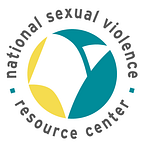When Lightning Strikes Twice…
Why Sexual Assault of Men with Disabilities is All Too Common
By James Meadours and Leigh Ann Davis
When you consider who faces the greatest risk of sexual assault, who comes to mind? Do you think about people with disabilities, or what about people with intellectual or developmental disabilities? Why or why not? Have you ever stopped to think about how often sexual assault happens to men with disabilities? The truth may surprise you.
The National Crime Victim Survey has been collecting data on how often people with disabilities are victimized for over a decade. The survey reveals that people with disabilities are 3 times more likely to be victims of serious violent crimes, which includes sexual assault, robbery and aggravated assault. When looking specifically at people with intellectual disabilities, they are 7 times more likely to be sexually assaulted than people without disabilities.
“I never thought lightning could strike twice in the same place, but in my life it happened. I was sexually assaulted four times during my life and this is not uncommon for men or women with disabilities.” — James Meadours
Other research has found that men with disabilities are twice as likely to become a victim of sexual violence compared to men without disabilities. Men with disabilities face challenges of not being believed or seen as credible when they do report because they have a disability. It can be even more difficult for those who identify as LGBTQ, as they face greater risk of sexual assault due to their sexual orientation. We contributed to a project and publication on the topic of male sexual assault survivors which includes links to these data points, and also uncovered the following themes:
Gender creates unique barriers for male victims
Often, society associates masculinity with strength, independence, and power and victimization with weakness. This makes it especially hard for a man with a disability (who already faces stereotypes due to having a disability) to come forward, seek help of any kind, or report sexual violence.
Having a disability can make it even harder to get help
Typically, disability organizations do not have the tools or ability to respond to situations involving male sexual assault survivors who have disabilities. Too often victim advocacy and disability agencies don’t know about each other’s services or know how to collaborate or even know that they need to collaborate. Some victim service professionals may not feel confident in their abilities to serve people with disabilities, so they may opt to provide less support.
Those with limited communication face unique challenges
Whenever there are challenges related to communication due to the presence of a disability, male victims can feel even more isolated and alone. For example, service providers may not provide an interpreter for someone who cannot hear. If family members or friends are asked to provide any type of communication support, this can create concerns about confidentiality, and what if the only person who can help with communication is the perpetrator? How can systems that were created to help victims ensure they are reaching the victims that are least likely to be heard, understood and served? This may be one of the hardest populations to reach. We must face this issue head on and make every victim a priority, regardless of the serious barriers to justice they face.
Not only do men with disabilities face challenges talking about or reporting sexual assault, it’s important to think about how consent fits into this conversation too. Consent is about empowerment — empowering people to set boundaries, ask for permission, and respect the choices of others when it comes to sex. These skills and behaviors are so important to people with disabilities, but often not included in relationship, sex and sexuality training. Our schools, educational systems and disability agencies must support the need for consent education in order to give power to people with disabilities who can learn to make informed decisions about sexual activity, and understand what sexual assault is when it happens to them.
As survivors of sexual assault, we are passionate about this issue and excited to be speaking out during Sexual Assault Awareness Month. We continue to look for ways to work together at the national level to ensure that people with disabilities are never ignored or forgotten in conversations about rape and sexual assault, especially men with disabilities who often remain in the shadows. You can be part of the solution. Learn more about The Arc’s National Center on Criminal Justice and Disability, and the Talk About Sexual Violence project. Educate family members, friends, co-workers, professionals in health care, law enforcement and victim advocacy services about this issue. There are many ways to get involved and your involvement could literally change a person’s life.
Together, let’s build the movement to end violence against ALL people with disabilities!
James Meadours is a nationally recognized Civil Rights and Sexual Assault Prevention Activist in the self-advocacy movement. As a survivor of a number of sexual assaults throughout his life, his mission is to educate society about the high rate of sexual violence in the disability community.
Leigh Ann Davis is Director of Criminal Justice Initiatives at The Arc of the United States and oversees its National Center on Criminal Justice and Disability®. She is a sexual assault survivor with over 22 years of experience working at the intersection of disability and criminal justice issues.
